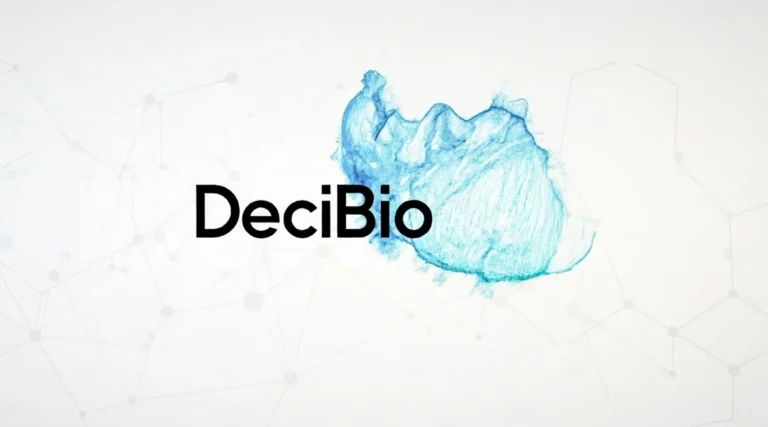
Takeda (TOKYO:4502/NYSE: TAK) has announced a commitment of JPY 4.6 billion (approximately USD 32 million) to five new Global Corporate Social Responsibility (CSR) partners. This investment is part of Takeda’s ongoing efforts to bolster health system resilience in low- and middle-income countries worldwide. The company’s focus is on addressing systemic disparities and supporting local leadership to strengthen health infrastructure, empower the health workforce, and enhance local knowledge and capacity, thus improving equitable and sustainable healthcare access and delivery. By 2030, these new collaborations are expected to benefit 27 million people across 93 countries, bringing Takeda’s total contributions from its Global CSR Program to over JPY 28.8 billion (around USD 199.1 million) across 34 key partnerships since the program’s inception in 2016. The five new partners were chosen through a company-wide vote by more than 22,000 Takeda employees in 80 countries, underscoring the company’s dedication to a collaborative and inclusive approach in its global philanthropic efforts.
“Since our founding in 1781, Takeda has prioritized patients, people, and society in its business decisions. We are committed to being a respected partner and making a long-term impact on global health challenges,” said Takako Ohyabu, Chief Global Corporate Affairs and Sustainability Officer at Takeda. “Our Global CSR Program has exemplified this commitment since 2016. I am particularly proud of our new partners’ dedication to equity, scalability, and sustainability, which are crucial for strengthening health systems. These long-term partnerships will not only create tangible impacts but also share valuable lessons, generating a ripple effect of innovation and improved health outcomes worldwide, especially for vulnerable populations in remote and conflict-affected areas.”
In FY2024, Takeda’s contributions to the new partners include:
- JPY 1,007 million (Approx. USD 7.0 million) to Population Services International (PSI) to enhance vaccine access through pharmacy-based immunization in Ethiopia, Kenya, and Nigeria. This initiative aims to integrate pharmacies into national vaccination programs, establish new service points within health systems, and alleviate the burden on public clinics, ultimately creating a scalable model for immunization across Africa.
- JPY 310 million (Approx. USD 2.1 million) to Bulungula Incubator to implement a community-driven, comprehensive healthcare approach within South Africa’s remote Xhorha Mouth Administrative Area. This initiative seeks to demonstrate a replicable model for universal healthcare in rural areas by empowering community health workers and integrating healthcare with local schools, sports events, and community radio.
- JPY 1,169 million (Approx. USD 8.1 million) to Reach Out Cameroon to improve access to care and psychosocial support for women and girls in conflict-affected communities in Cameroon, the Democratic Republic of Congo, and Nigeria. This support includes training health workers, supply chain managers, and youth champions, and enhancing the capacity of 270 under-resourced health facilities to offer quality services and information.
- JPY 895 million (Approx. USD 6.2 million) to Seed Global Health to help Malawi, Sierra Leone, Uganda, and Zambia build a skilled health workforce. This includes launching new academic programs in OB/GYN and neonatal emergency care, establishing three locally-led centers of excellence for maternal and neonatal health training, and graduating 5,900 qualified health professionals.
- JPY 1,259 million (Approx. USD 8.7 million) to VillageReach to support Democratic Republic of Congo, Guinea, Malawi, Tanzania, and Uganda in enhancing their health systems’ capacity to transport patient samples to laboratories, respond to outbreaks, and create integrated solutions for outbreak-prone diseases, thus improving early disease detection and response.
The new partners expressed:
- “Vaccines save lives, and with the global decrease in routine immunizations, this partnership with Takeda will help mobilize pharmacies to provide vaccines at scale,” said Karl Hofmann, CEO and President of PSI. “This collaboration will enhance vaccination rates, empower individuals to manage their health, and accelerate progress toward Universal Health Coverage.”
- “We are honored to partner with Takeda to significantly improve healthcare access and outcomes in remote rural areas,” said Réjane Woodroffe, Director of Bulungula Incubator. “Our goal is to create resilient communities with inclusive health solutions where everyone has the chance to thrive.”
- “In times of humanitarian crises, especially those driven by conflict, access to quality care is a fundamental right for every woman and girl,” said Esther Omam Njomo, Executive Director of Reach Out Cameroon. “Our partnership with Takeda is a bold step toward enhancing access to care for women and girls in conflict-affected regions.”
- “Takeda’s support allows Seed Global Health to train more health professionals and provide essential resources to deliver high-quality care,” said Andrew Musoke, COO of Seed Global Health.
- “The rise in emerging outbreaks underscores the urgent need for responsive health care systems,” said Emily Bancroft, CEO and President of VillageReach. “This partnership with Takeda will help strengthen the infrastructure needed for rapid disease detection and response, saving lives and reducing strain on fragile health systems.”
Since its launch in 2016, Takeda’s Global CSR Program has reached over 17.8 million direct beneficiaries in 93 countries, contributing to health system strengthening in the following areas, as outlined by WHO’s Health System Strengthening Building Blocks:
- Service Delivery and Access to Essential Medicines: Enhanced accessibility and quality of service delivery for more than 13.4 million people, provided essential health supplies to over 28,000 individuals, empowered over 4.1 million community members with health education, and refurbished or constructed more than 2,700 health facilities.
- Health Workforce Empowerment: Trained over 110,000 health professionals and community health workers, as well as other essential personnel such as health supply chain managers and health information system administrators.
- Health Information Systems: Developed or enhanced 276 digital solutions to support data-informed health planning and decision-making.
- Leadership and Governance: Developed or improved 420 strategic plans and policies to ensure local ownership and sustainability of innovative health solutions.





